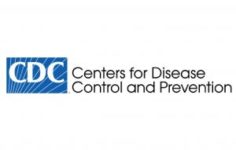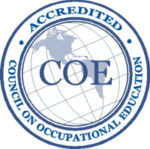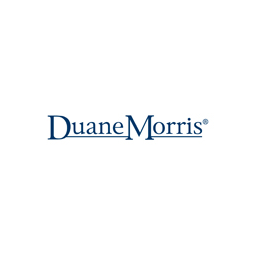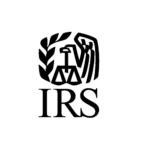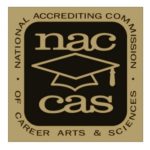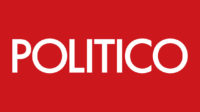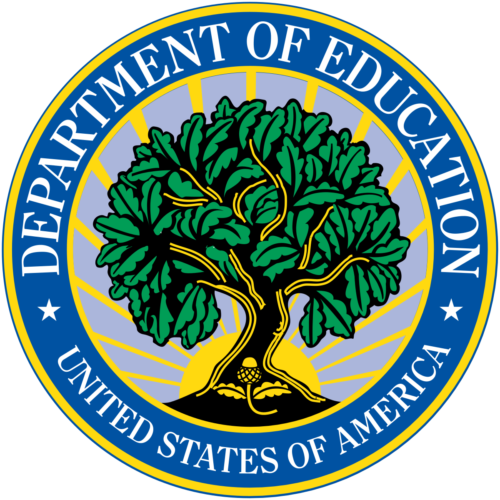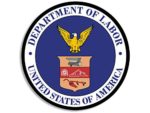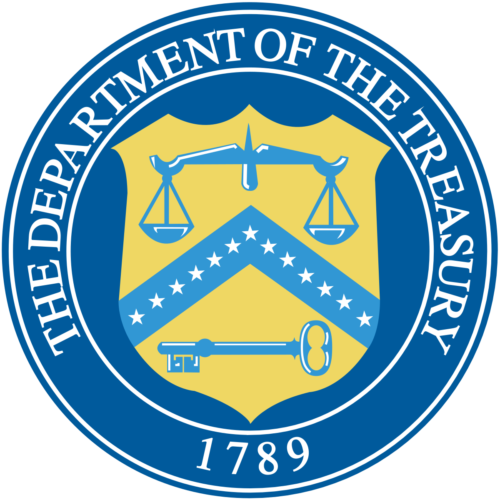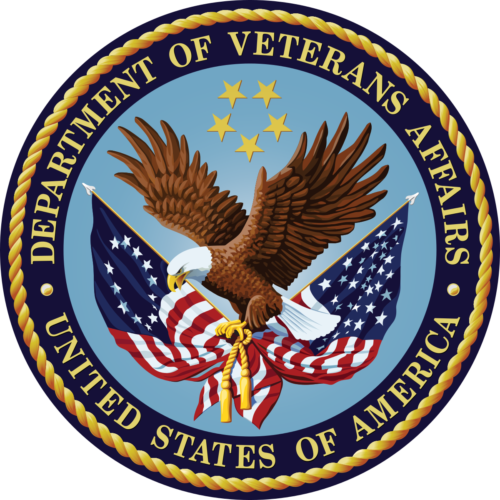AACS is committed to providing the latest information to keep your institutions, students, staff and the public safe and healthy. We will be updating our information as soon as it becomes available. Click here to take a look at our COVID-19 Preparedness infographic


Interim Guidance for SARS-CoV-2 Testing and Screening at Institutions of Higher Education
For College and University Administrators
Coronavirus Resource Center
Distance Learning Resources
Before offering distance learning, be sure it is approved by your accreditor and State board
Are you new to remote teaching? Check out our video conference tips from a TV anchor
 | Associated Skin Care Professionals 2020 ASCP SKIN CARE SCHOOL FORUM VIRTUAL EDITION Monday, June 8, 2020 12:00 pm ET / 11:00 am CT / 10:00 am MT / 9:00 am PT Join us for a day of online discussion and insight into the future of esthetics education in the new normal. Watch and engage with experts and school owners from across the country as we discuss navigating the evolution of esty programs during a pandemic and beyond. All school employees, owners, directors, instructors, etc., are invited to attend! REGISTER NOW—IT'S FREE Click Here To Register Free lesson plans include Retail Success, Risk Reduction, Marketing with online portfolio builder, and more. Lessons are complete with PowerPoint slides, quizzes and student activities. Register for free lesson plans For access to weekly technique videos and student quizzes, sign up to receive Esty Educator newsletter at education@ascpskincare.com | 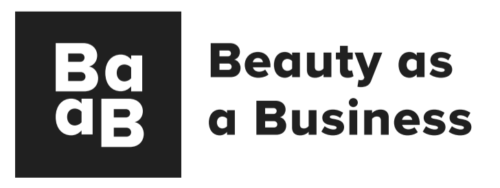 | Beauty As A Business 10 complimentary hours of distance learning to all beauty schools. Students will enjoy lessons on How to Take the Right Photo/Video for Social Media and Google Reviews Training. Registration also comes with teacher lesson plans! Click to link to register today. Register Your School For 10 Complimentary Hours Per Student |
 | Cisco Webex The first month free when you sign up for a monthly plan. Four months free when purchasing an annual plan. Supporting Customers During This Unprecedented Time Cisco Webex Plans and Pricing |  | Dermalogica Schools that are not customers of Dermalogica can have their students access our FITE Business Accelerator modules for FREE online. Schools that are Dermalogica Partnership Schools can not only access those classes for free, there is an entire new menu of classes, including some hands on virtual workshops the students can access. Learn more about FITE Business Accelerator Sign Up Today |
 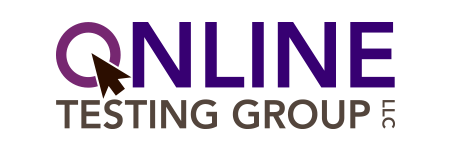 | FAME partnered with Online Testing Group Free online theory testing to all new users through June 30th Free online theory testing information |  | GoToMeeting 3 months free for Emergency Remote Work Kits Coronavirus and Disruptions: An Offer of Support to Our Communities and Customers Sign Up For Emergency Remote Work Kits |
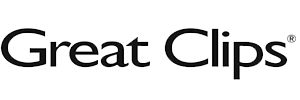 | Great Clips, Inc Great Clips, Inc. is pleased to offer cosmetology schools access to a series of technical education courses. Great Clips, Inc. makes no guarantee as to whether its courses will satisfy cosmetology curriculum requirements. We hope you find these videos helpful in your learning journey. Questions? Contact Kim Schottler (kim.schottler@greatclips.com or 952-746-6461) Access Virtual Library |  | G-Suite For all G Suite customers, there is free access to our advanced video conferencing capabilities in Hangouts Meet until July 1, 2020 How To Access Premium Hangouts |
 | Microsoft Teams The basic plan with no user limits Commitment To Customers During COVID-19 Sign Up For The Freemium Version | 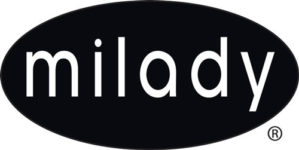 | Milady Milady has launched a complimentary two-hour Infection Control Certification program for any current or future professional. This course is completely neutral when it comes to manufacturers/brands and has a sole purpose of refreshing professionals’ knowledge on how to best protect the health and safety of the public. Also available is a comprehensive PDF with general guidelines for reopening salons/spas/barbershops. Please visit https://www.miladytraining.com/ for more information on this complimentary course and certification. Complimentary access to MindTap, their digital learning platform, for students currently enrolled in ANY U.S.-based beauty/wellness program. Request MindTap access |
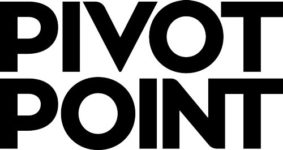 | Pivot Point Complimentary access to LAB, their digital platform, for anyone currently enrolled in hair, beauty and wellness in North America. They are also offering unlimited training webinars to get you up and running. Pivot Point Support During This Challenging Time Register for LAB |  | Prosper U Prosper U is offering two free courses for schools: Culture and Impacting Your Numbers. The two courses are approximately 10 hours of distance education. If your school is using Pivot Point LAB, contact your Pivot Point representative to gain access. Free Distance Education for non-Pivot Point LAB schools |
 | Sanitation Conversation Complimentary online, health-grade makeup sanitation training for school owners and their teams. Use the code: AACSsaniconvo Offer is good through June 12th, 2020. Register for complimentary access here |  | Sassoon 4 weeks of complimentary access to SASSOONLINE- up to 20 hours of distance learning content per week. Free Distance Learning For Schools |
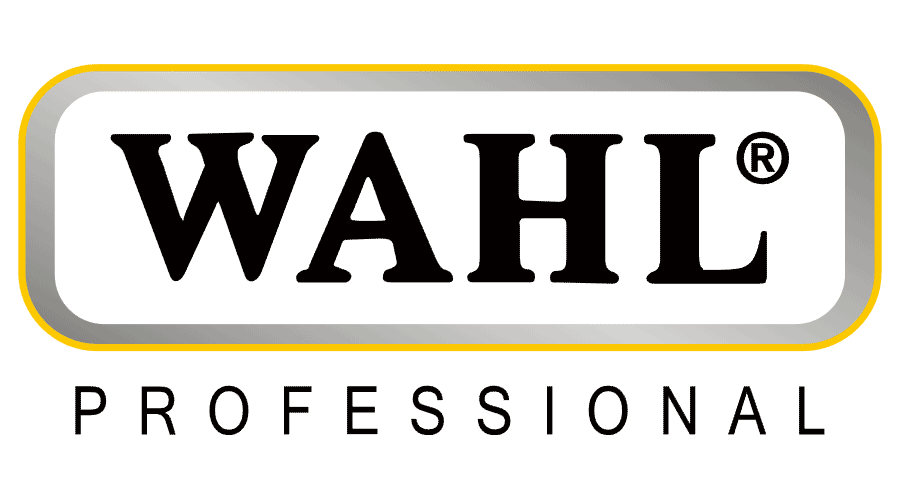 | Wahl Professionals Wahl Academy Online is offering free online courses and tutorials with new content added weekly. Access Wahl Academy Online |
Petition Your State For Distance Learning
Below is a running list of each state’s cosmetology board and its response to distance learning. To make this process easier for you, we have created a letter template to send to your state cosmetology board to encourage the approval of distance learning. Click here to download
Please note that the information listed is from the AACS State Relations Committee and/or our review of state board websites. Accordingly, developments may be occurring faster than our ability to capture/report on them. Please contact your state regulator(s) for the most current information.
| State | Cosmetology Regulatory Body | Website | School Guidance: |
|---|---|---|---|
| Alabama | Alabama Board of Cosmetology and Barbering | http://www.aboc.alabama.gov | An AACS member reported that schools were allowed to open on June 1st. Temporary Distance Education ends on July 3, 2020. As a result of the COVID-19 interruptions of study, the Alabama Board of Cosmetology and Barbering (ABOCB) will temporarily accept course work for distance learning programs beginning March 16, 2020, for clock hour courses for theory and practical instruction that lead to licensure with ABOCB. In accordance with NACCAS/USDE guidelines to temporarily permit institutions which have suspended on-site training, students may obtain online education for up to 50% of the total course work. The Board is also following these guidelines regarding the enrollment of new students prior to June 1, 2020. Each school should determine the number of theory and/or practical hours based on the course of study in accordance with the school's established curriculum. Time sheets must be maintained to include distance learning hours and are subject to inspection by the Board. Distance learning programs for the purposes of this exception must include communication from the institution/instructors with the students through one of several types of technology, including but not limited to, email, chat features, or telephone calls, individually or collectively, and require students to periodically submit work which will be evaluated by the instructors. |
| Alaska | Alaska Board of Barbers and Hairdressers | https://www.commerce.alaska.gov/ | https://www.commerce.alaska.gov/web/Portals/5/pub/BAH_COVIDLetter03_2020.pdf Per guidance issued on March 25, 2020, schools may offer 25% of theory training in a distance education setting. Please refer to your specific curriculum for more information. |
| Arizona | Arizona State Board of Cosmetology | https://boc.az.gov/ | Arizona Governor Doug Ducey signed Executive Order Executive Order 2020-17 on March 26, 2020. It states that a state agency of board that licenses individuals or entities as indicated herein shall “suspend any rules that prevent or limit the amount of online or alternative learning hours permitted to issue or renew a license.” |
| Arkansas | Arkansas Department of Health - Cosmetology Section | https://www.healthy.arkansas.gov | In lieu of the Governor’s public announcement declaring a public health emergency the Arkansas Department of Health Cosmetology and Massage Therapy Section will allow for distance education for occupational education during the period of emergency. Each School of Cosmetology, Postsecondary School of Cosmetology, or Postsecondary Massage Therapy School should make decisions they feel are most appropriate for their situation. Please continue to monitor the Arkansas Department of Health website and the CDC website for further information pertaining to the situation. https://www.healthy.arkansas.gov/programs-services/topics/novel-coronavirus |
| California | California Board of Barbering and Cosmetology | http://www.barbercosmo.ca.gov/ | *April 13, 2020 Update from BPPE* The latest updates from local and federal outlets indicate current “Shelter In Place” mandates will continue for an undetermined amount of time. In the face of an unprecedented health pandemic the Bureau for Private Postsecondary Education (BPPE) worked to aid students wanting to continue their educational pursuits as well as assisted institutions needing to continue operations. By allowing the temporary use of distance education techniques, BPPE hoped to lessen, if only slightly, the impact of social distancing on the classroom. This action was never intended to be a permanent resolution. In order to preserve a sustainable solution and maintain compliance with our laws and regulations, BPPE must thoroughly review and formally approve each institutions distance education program. This will require an institution to submit a complete Application for Significant Change in Method of Instructional Delivery and applicable fee. The benefits of permanently approving a new method include the ability of institutions to utilize remote learning techniques throughout the current crisis as well as the option of incorporating the approved resource as needed in future classes or programs. If an institution wishes to utilize distance education beyond June 30, 2020 the school will need to submit an Application for Significant Change in Method of Instructional Delivery (https://www.bppe.ca.gov/forms_pubs/change_method.pdf) by May 15, 2020. Any temporary use of distance education will not be valid after June 30, 2020. Any institution utilizing unapproved distance learning will be subject to citations and fines. Mail Application and Fee to: Bureau for Private Postsecondary Education P.O. Box 980818 West Sacramento, CA 95798-0818 If any institution does not submit an application, they will be required to terminate the use of distance learning, temporarily close or return to normal operations after June 30, 2020. If at any time in the future, a decision to pursue distance education is made please contact the BPPE-Licensing Unit at (916) 574-8900 or bppe.licensing@dca.ca.gov . Please contact me if you have any questions or concerns. Stay safe, stay healthy. |
| Colorado | Colorado Department of Regulatory Agencies - Office of Barber and Cosmetology Licensure | https://www.colorado.gov | TEMPORARY DISTANCE EDUCATION REQUEST WAIVER: DPOS will temporarily, on a case by case basis, waive its distance education review requirements for institutions that indicate they are accommodating students whose enrollment is interrupted as a result of the coronavirus outbreak. If an institution determines that it has the need and capacity to offer some or all of its educational offerings in a distance education format that is beyond the scope of your current approval as a delivery method , DPOS has created an expedited, no-fee process so that institutions can request a temporary waiver of normal requirements for approving distance education. Again, it is important that you obtain this approval of delivery method from the Division PRIOR to making that change in order to be compliant with Statute and Rules that govern Private Occupational Schools in Colorado. This approval is vital in ensuring ongoing quality education to students and enables the Division to be aware of the change in the event that a student files a complaint against the school. If this is the direction your school is wanting to go, please request the waiver from your assigned Program Specialist. When filling out the approval form please be prepared to provide the following information: • Proposed method of delivery (online system being used such as skype, zoom etc.); • Student’s ability to access this delivery system (e.g. 95 of 100 students have home computer or telephone access which will enable continued educational services); • Identify which portions of classes or programs are offered online; • Identify attendance records and methods for testing or tracking progression; • Provide information regarding how you will deal with lab, or “hands on” portions of the education; |
| Connecticut | Examining Board for Barbers, Hairdressers and Cosmeticians | http://www.ct.gov | Connecticut's Office of Higher Education is allowing barber/hairdresser schools "to temporarily offer distance education for the theory portion of their programs with our approval." The required approval application asks schools to "attach a detailed description of the type of delivery the school will use to preform distance instruction. This should include the educational platform used by the school, how instruction will be delivered, how instructors/school directors will interact with students and all additional resources that will be available to students. The school must confirm that all students enrolled in programs to be offered within this format will have complete access to all resources described herein." |
| Delaware | Delaware Board of Cosmetology and Barbering | https://dpr.delaware.gov | From a DE school owner 3/13: Both state agencies in Delaware (Department of Education and Division of Professional Regulation) have expressed to me that they are willing to permit temporary distance education. They are requiring we submit our 'plan' for approval. |
| Florida | Florida Commission For Independent Education | http://www.fldoe.org | From the Commission for Independent Education: “Currently, the March 25-26, 2020 Commission Meeting has been postponed. As changes occur regarding the meeting it will be posted on the Commission’s website and emailed to your address of record. It is important to keep the Commission office updated if your institution experiences any disruptions to operations. Please feel free to contact your program specialist should you have any questions regarding a contingency plan if needed. Additional information regarding on-line courses will be forthcoming." |
| Georgia | Georgia State Board of Cosmetology and Barbers | http://sos.ga.gov | Schools may utilize electronic education through current national programs such as Milady or Pivot Point, or classes taught through webinars like Go To Meeting, Citrix, and others. The Board will accept all theory hours taught through electronic means. Please be aware that the practical part of the curriculum must still be taught inside the school and under the direct supervision of a licensed instructor. See the link below for additional information.https://sos.ga.gov/PLB/acrobat/Forms/28%20Reference%20-%20COVID-19%20Memorandum%20for%20Schools.pdf |
| Hawaii | Hawaii Barbering and Cosmetology Board | http://cca.hawaii.gov | From the Executive Officer of the Board of Barbering and Cosmetology: "The Hawaii Board of Barbering and Cosmetology has previously approved online theory and practical curriculums. I have been working with our licensed schools in determining appropriate safeguards and methodologies. If you are aware of a Hawaii licensed school that needs assistance in implementing a distance learning curriculum, please have them reach out to me." barber_cosm@dcca.hawaii.gov |
| Idaho | Idaho Barber and Cosmetology Services Licensing Board | https://ibol.idaho.gov | On March 16, 2020 at its regularly scheduled and noticed meeting, the Board voted to allow barber and cosmetology schools to use distance learning for Theory courses, including the use of mannequin heads if necessary, from now until April 6, 2020. At its April 2, 2020 meeting, the Board will revisit this decision and provide further guidance to schools at that time. |
| Illinois | Illinois Department of Financial and Professional Regulation/Barber, Cosmetology, Esthetics, Hair Braiding, and Nail Technology Board | http://www.idfpr.com | DEPARTMENT OF FINANCIAL AND PROFESSIONAL REGULATION - April 9, 2020 https://idfpr.com/Forms/COVID19/Variance%20for%20BCENT%20Schools%20Regarding%20Online%20Courses.pdf VARIANCE Pursuant to the authority granted in 68 Illinois Administrative Code § 1175.110, I hereby grant a school licensed pursuant to Article IIID of the Barber, Cosmetology, Esthetics, Hair Braiding, and Nail Technology Act of 1985 (hereinafter “BCENT”), a variance from 68 Illinois Administrative Code § 1175.330(a), 1175.331(b), 1175.332(b), 1175.335(a), 1175.336(a), 1175.530(a), 1175.531(b), 1175.532(a), 1175.535(a), 1175.536(a), 1175.835(a), 1175.836(b), 1175.840(a), 1175.842(a), 1175.1135(a), 1175.1136(b), 1175.1140(a), 1175.1142(a), 1175.1535(a), 1175.1175.1540(a), which state, in part, that online hours in theory shall not exceed 10% of the hours required in subsequent subsections. This Variance is granted based upon the particular facts surrounding the Illinois Gubernatorial Disaster Proclamation issued on March 09, 2020 and again on April 01, 2020. In order to contain the spread of COVID-19, the Department has become aware that schools are closing campuses and moving to online instruction. As a result, current students at schools licensed pursuant to Article IIID of BCENT who began instruction prior to March 09, 2020 may end up exceeding the 10% limit for online theory courses and theory portions of practicum courses. This Variance shall be permitted to allow a school licensed under Article IIID of BCENT to teach online theory courses and theory portions of practicum courses in excess of the 10% of the hours of each subsection listed above, to a maximum of 50%. This Variance shall only apply to students who were considered current students prior to March 09, 2020. Pursuant to this Variance, coursework allowed to be done online shall exclude the following: • Usage of hazardous chemicals • Use of a razor on skin • Application of eyelash extensions, tabs, and strips • Procedures outlined in 68 Illinois Administrative Code § 1175.530(e)(7), (8), & (9) • Procedures outlined in 68 Illinois Administrative Code § 1175.530(f)(1), (2), (3), & (4) • Procedures outlined in 68 Illinois Administrative Code § 1175.835(a)(3)(G), (H), (I), & (J) • Procedures outlined in 68 Illinois Administrative Code § 1175.1135(a)(3)(A), (B), (C), and D) Notwithstanding the aforementioned rules, this Variance is in no way intended to waive or modify any other statute, rule, or regulation on curriculum requirements for schools licensed under Article IIID of BCENT. Said schools shall be subject to comply with all additional rules and regulations contained in BCENT and applicable administrative rules. This Variance shall expire when the Illinois Gubernatorial Disaster Proclamation has been lifted. |
| Indiana | Indiana State Board of Cosmetology and Barber Examiners | http://www.in.gov | Temporary suspension of in-school hours requirement: For the duration of the public health crisis, the Indiana State Board of Cosmetology and Barber Examiners has temporarily suspended 820 IAC 4-1-5(b). This suspension means that cosmetology students are no longer required to attain their cosmetology school hours in-person at the school and may take remote programing provided by the cosmetology school. The students are still required to attain the same amount of hours and the courses must otherwise comply with existing rules; however they are not required to be in-person for the duration of the public health crisis. |
| Iowa | Iowa Board of Cosmetology Arts and Sciences | http://idph.iowa.gov | During the COVID-19 Pandemic, the Iowa Board of Cosmetology Arts and Sciences and the Iowa Board of Barbering approves board licensed Iowa schools to deliver cosmetology arts and sciences and barbering education by whatever means is acceptable to your accreditor and as approved by the Federal Department of Education. Consult your accrediting agency for further guidance. |
| Kansas | Kansas Board of Cosmetology | http://www.kansas.gov | On March 12th, the Board held a special meeting and authorized the Executive Director to temporarily approve school requests for distance learning for students currently enrolled where the distance learning venue meets the statutory 1:25 student-instructor ratio and a method of tracking attendance is in place. Schools requesting approval should email the following to KBOC@ks.gov for review: 1. Documentation that the school has been closed or preparing for closure if needed due to the coronavirus (COVID-19). 2. Detailed distance learning plan outlining how attendance will be tracked, how the 1:25 student-instructor ratio will be maintained and how assignments will be provided, completed and credited per subject hour requirements. |
| Kentucky | Kentucky State Board of Hairdressers & Cosmetologists | https://kbc.ky.gov | In a March 19, 2020 memo to schools, Kentucky’s Board of Cosmetology provided the following guidance. As of now according to Governor Andy Beshear’s Executive Order 2020-243 issued late night March 18, 2020 the board has the authority to implement temporary distance learning parameters. This is also being filed as an emergency regulation amendment to be temporarily enacted with the following stipulations: 201 KAR 12:082E School Administration Section 33. Emergency Alternative Education. Digital theory content may be administered by a licensed school in the event of forced long-term emergency closure due to a world health concern. The necessary compliance steps for implementation are: (1) Full auditable attendance records shall be kept showing actual contact time spent by a student in the instruction module. (2) Milady supported Mind Tap, Pivot Point supported LAB, or recorded video conference participation shall be used. (3) Schools shall submit an outline to the board within ten (10) days of occurrence on the required content to be taught or completed. (4) Completion certificates showing final scoring on digital modules shall be maintained in student records. (5) Schools and students shall comply with Section 4 of this regulation on accessible hours. (6) No student shall accrue more than 100 hours of emergency alternative education time. |
| Louisiana | Louisiana State Board of Cosmetology | http://www.lsbc.louisiana.gov/ | The Louisiana Board of Cosmetology approved distance learning at the March meeting. Letters have been sent to each school. |
| Maine | Maine Office of Professional and Occupational Regulation - Barbering and Cosmetology Licensing Program | http://www.maine.gov | To: All Maine Licensed Barbering and Cosmetology Schools From: Geraldine L. Betts, Administrator RE: Distance Education and Learning Date: March 20, 2020 I have been contacted by some schools about the ability to offer distance education and learning if the school decides to cancel classes as a measure of mitigating the spread of the 2019 novel coronavirus (COVID-19). This will confirm that the Maine Barbering and Cosmetology Licensing Rules addresses distance education and learning as follows: Chapter 27, subchapter 1(4) – Distance education or learning. "Distance education” or “learning" means education in which instruction does not take place in a traditional classroom setting, but through other media such as computer-based training, Internet, video recording, or other mode of distance delivery where the instructor and student are separated by distance and, in some cases, time. It is the schools duty and responsibility to develop the learning plan and the management of credit hours that is in the best interest of students. |
| Maryland | Maryland Board of Cosmetologists & Maryland Higher Education Commission | https://mhec.maryland.gov https://www.dllr.state.md.us | From the Maryland Higher Education Commission: https://mhec.maryland.gov/Documents/COVID-19%20Distance%20Ed.pdf Also: https://mhec.maryland.gov/Documents/COVID-19%20Clock-Hours.pdf "Regarding programs that lead to licensure, the US Department of Education has left the decision to accept clock-hours in a distance education format up to the applicable licensure body. We have asked licensing boards at the Maryland Department of Labor and the Maryland Department of Health to provide guidance regarding the acceptance or denial of a change in modality (e.g., face-to-face or distance education) for clock-hours that are required for licensure or certification. We have asked that this guidance (or a timeline for the guidance) be provided by close of business Friday, March 13, 2020. We are similarly in active communication with the Maryland State Department of Education. Again, we will share information regarding this matter as it becomes available. |
| Massachusetts | Board of Registration of Cosmetology and Barbering | https://www.mass.gov | If a school closes, it must submit notification of its closure and detailed plans for any distance-based learning to cosmetologyandbarberingboard@mass.gov. The distance-based learning plan must include qualitative and quantitative measurements of education. Schools must update the Board every 30 days from its original notification on any changes to its distance-based learning plan and closure status. |
| Michigan | Michigan Department of Licensing and Regulatory Affairs - Cosmetology Department | http://www.michigan.gov | A representative from Michigan's Department of Licensing and Regulatory Affairs reported to AACS, "neither the Board nor the Department has authority to issue a waiver from cosmetology educational or curriculum requirements set by statute or rule. No guidance has been issued regarding distance education. If a school has the ability to remotely monitor a student in the performance of practical applications it may be an acceptable emergency method of instruction. It would be up to the school to justify compliance with all applicable rules and make the argument regarding the need for emergency protocols. For your convenience, please see below links to access the Administrative Rules for Cosmetology, Occupational Code and also helpful links to stay up to date on the rapidly changing outbreak of COVID-19." https://dtmb.state.mi.us/ARS_Public/AdminCode/DownloadAdminCodeFile?FileName=1921_2019-028LR_AdminCode.pdf http://legislature.mi.gov/doc.aspx?mcl-299-1980-12 https://www.michigan.gov/Coronavirus https://www.cdc.gov/coronavirus/ |
| Minnesota | Minnesota Board of Cosmetologist Examiners | https://mn.gov | https://mn.gov/boards/assets/COVID19_2020-3-27_Schools_tcm21-425384.pdf The Board held an emergency Board meeting on Friday, March 27, 2020 to discuss the COVID-19 pandemic and the impact on cosmetology schools. Specifically, the Board discussed the following topics and issued the following guidance: 1. Online Theory Instruction Board motion: “Until June 1, 2020, the Board will approve all cosmetology schools to temporarily move any scheduled theory instruction online. Schools that pursue this option must report to the Board: • A written explanation of all changes • The name of the program/courses impacted by the changes • The mode of instruction and the textbooks and resources to be used • The date the change in instruction will take effect Instruction must follow the training topics within the school’s previously approved curricula and schedule and must relate to the student’s scheduled training. Changes must be reported by April 3, 2020. This process change is effective from March 15, 2020 until June 1, 2020, but the timeframe is subject to change based on any external state or federal orders, and at the Board's discretion.” Schools choosing to move theory instruction online or adjust previously-submitted Alternate Learning Plans can report the changes following the guidelines above to cosmoschools@state.mn.us. Changes must be reported by Friday, April 3, 2020. 2. Online Practical Instruction Relevant Statute: Minnesota Statutes, Chapter 155A.30 Subd. 11 (b) “Instruction must be given within a licensed school building. Online instruction is permitted for board-approved theory-based classes. Practice-based classes must not be given online.” The Board does not have the authority to waive, vary, or modify statutes. Thus, the Board cannot independently approve an online method for practical education. Additionally, Board staff has been in consultation with a variety of stakeholders and moving technical based learning to a distance model has not been advised. At the time that this update was published, Minnesota Statutes, Chapter 155A.30 Subd. 11 (b) remains in effect. The Board has not received guidance from the Governor’s Office, nor has an Executive Order been issued, to allow online practical instruction or to deviate from this existing statute. |
| Mississippi | Mississippi State Board of Cosmetology | http://www.msbc.ms.gov | Mississippi promulgated a temporary rule "to allow schools to continue instructing students during the COVID-19 national emergency" on April 6, 2020. ttps://www.sos.ms.gov/ACProposed/00024823b.pdf Rule 5.25 Online Instruction 1. A school may instruct any part of its curriculum, whether practical skills or theory instruction, through online or other distance learning technique if: a. The program of online instruction or distance learning is not in violation of the requirements of its accrediting body; and b. The program of online or distance learning provides a method for instructors to review the work of students for both theory and practical instruction; and c.Students either already own or are provided with all necessary materials and equipment needed for practical instruction if the school teaches practical skills instruction through online or distance learning. 2. Within thirty (30) days of the latter of the effective date of this rule or the initiation of a program online or distance learning, a school instructing students through online or distance learning must complete and return a form provided by the board. |
| Missouri | Missouri State Board of Cosmetology and Barber Examiners | http://pr.mo.gov/cosbar.asp | The Board of Cosmetology and Barber Examiners (“Board”) has been approved through the Office of the Governor pursuant to Executive Order 4 — Gov. Michael Parson suspends certain agency regulations to allow them to address the current state of emergency to offer distance education. Please complete the attached form if your school would like to offer distance education through the current state of emergency and email or fax the completed application to the Board office. Once approve you will receive an approval letter through fax or email. The Board office has several staff members available to review and approve these applications to ensure no additional down time for our schools. The Board office will remain open unless instructed differently, the board’s office hours are 8:00 a.m. to 5:00 p.m. UPDATED APRIL 6: The Board of Cosmetology and Barber Examiners has continued to monitor the Coronavirus pandemic. The Board has made the following updates to the distance education program: For schools that have already received temporary approval for use of distance education: Approved schools may now utilize this program for the delivery of both theory and practical instruction and with the max hours approved during for Distance Education updated to fifty (50) percent of the course hours. |
| Montana | Montana Board of Barbers and Cosmetologists | http://boards.bsd.dli.mt.gov | The Board motions to allow up to 100% of hours, theory and clinical/practical, in any course (e.g. cosmetology, barbering, manicuring, esthetician, electrologist, instructor, etc.) to be taught through distance learning because of the highly unusual circumstances and challenges presented by the response to COVID-19. Schools may use discretion regarding which students should be allowed to participate via distance learning and schools must comply with their accreditation standards, if applicable. However, any school that uses distance learning must utilize technologies and practices that verify the identity of the distance-learning student. This Board motion is effective through the duration of State of Montana, Office of the Governor Executive Order No. 2-2020, declaring a state of emergency to exist within the state of Montana related to the communicable disease COVID-19 Novel Coronavirus. |
| Nebraska | Nebraska Department of Health and Human Services | http://dhhs.ne.gov | The regulations and statutes do not identify the method by which cosmetology ‘theory classes’ are provided, so distance learning is an acceptable option for teaching theory classes. With any method of training, the school needs to ensure compliance with the statutes and regulations relating to school operating requirements including, but not limited to, the below statutes.” Please note DHHS does not oversee barbering schools, only cosmetology, esthetics, and nail technology. Statutes 38-10,102. Licensed school; operating requirements. 38-10,103. School or apprentice salon; operation; student; apprentice; student instructor; requirements. 38-10,104. Licensed school; additional operating requirements. |
| Nevada | Nevada State Board of Cosmetology | http://cosmetology.nv.gov/ | Temporary Distance Education ended June 1st as schools were allowed to reopen. At the March 19, 2020 emergency board meeting, the board members of the Nevada State Board of Cosmetology voted to temporarily approve distance learning education for currently registered beauty school students and licensed beauty schools during the COVID-19 pandemic. The temporary distance learning approval is only active during Governor Sisolak's directive that all non-essential businesses close for 30 days. The following are the emergency procedure guidelines approved by the board members for licensed beauty schools to follow when administering distance learning education to currently registered beauty school students. Length of Temporary Approval for Distance Learning Distance learning has been temporarily approved for 30 days and will expire on April 19, 2020. Maximum Number of Theory Hours per Day Up to 6 hours of theoretical training is permitted per day. Maximum Number of Theory Hours per Week Up to 30 hours of theoretical training is permitted per week. Maximum Number of Theory Hours per Month A total of 120 hours of theoretical training is permitted during the 30 day temporary approval period. NAC Theory Subjects for Distance Learning Please review the theory curriculum regulations below to satisfy theoretical requirements: Cosmetology Students - NAC 644A.630 Hair Design Students- NAC 644A.632 Esthetics Students- NAC 644A.634 Nail Technology Students- NAC 644A.636 Student/PIL Instructor Candidates- NAC 644A.63 8 Method of Student Hour Verification All licensed beauty schools must be able to provide the Board with an hour report of each student’s earned hours in an electronic format that is generated from the schools’ selected distance learning software platform (Milady, Pivot Point Platforms, etc). Unverifiable theoretical hours will not be accepted. Does Distance Learning Include Practical Hours The temporary distance learning procedure is not available for practical hours. |
| New Hampshire | New Hampshire Board of Barbering, Cosmetology, and Esthetics | https://www.oplc.nh.gov | The New Hampshire Board voted to approve up to 50% via distance learning and they also approved practical work on a mannequin. |
| New Jersey | New Jersey State Board of Cosmetology and Hairstyling | http://www.njconsumeraffairs.gov | To All New Jersey Cosmetology and Hairstyling Schools: The New Jersey State Board of Cosmetology and Hairstyling continues to follow the National Accrediting Commission of Career Arts & Sciences’ (NACCAS) guidance in the area of Temporary Distance Education programs. In accordance with NACCAS Guidelines, if a New Jersey cosmetology school’s distance learning program will exceed 50% of the approved program’s curriculum, the school must: 1) Formally notify NACCAS of its intent to continue distance education beyond 50% of the approved program’s curriculum by emailing Executive Director, Dr. Anthony Mirando at amirando@naccas.org. 2) Advise NACCAS of the maximum percentage of distance education the Board permits. The Board grants all Board-licensed schools the ability to extend their temporary distance education programs up to a maximum of 100% of the program provided the same schools agree to allow all students enrolled in distance education the opportunity to return to the school for up to 12 months after graduation for remedial assistance without additional charge. 3) Advise NACCAS that the New Jersey Board of Cosmetology does not have laws or rules in effect regarding distance education. 4) The maximum percentage of the program the school intends to offer in distance education. For example, the Board may authorize a maximum of 100% of the program, but the school may want to cap distance learning at 80% at the school’s discretion. The Board recommends selecting a percentage the school will not exceed. Because of the uncertainty regarding the time-frame of the end of the Covid-19 pandemic, as well as the beginning of the first phase of reopening the State of New Jersey, the Board is extending schools’ ability to enroll students into Temporary Distance Education programs from June 1, 2020 through December 31, 2020. |
| New Mexico | New Mexico Board of Barbers and Cosmetologists | http://www.rld.state.nm.us | Permanent NM regulations allows schools to offer up to twenty-five percent of the program content online. |
| New York | New York Department of State, Division of Licensing Services | http://www.dos.ny.gov | http://www.acces.nysed.gov/common/acces/files/bpss/bpss.covid-19.guidance-final-3.13.2020_0.pdf All schools granted special exemption to temporarily utilize online learning in response to COVID-19 shall remain responsible for ensuring that any instruction delivered via online learning modalities is comparable in scope and quality to the face-to-face instruction upon which the original curriculum approval was based, and for accurately documenting that students have completed all required curriculum hours. Schools offering appearance enhancement curricula leading to licensure from the New York State Department of State are eligible to request a special exemption to temporarily offer knowledge-based (theory) coursework online. Approvals will be granted if schools are able to satisfy the five elements necessary for special exemption as outlined in the guidance memo. |
| North Carolina | North Carolina Board of Cosmetic Art Examiners | https://www.nccosmeticarts.com/ | North Carolina regulations (21 NCAC 14T .0611) permit online instruction. The regulations state “online instruction shall be limited to the theory portion only and no more than 50 percent for teacher trainees and 30 percent of the total required hours for the respective cosmetic art discipline. No practical instruction shall be permitted through online education.” |
| North Dakota | North Dakota Board of Cosmetology | https://www.ndcosmetology.com/ | North Dakota’s State Board of Cosmetology, determined on March 23rd that online cosmetology instruction is allowable for theory curriculum, but clinic hours must be completed in a school and under the direct supervision of a licensed instructor. According to draft minutes of the Board conference call, “it will be up to the Schools to determine how they will operate during this time within the parameters of the law. Where the law is silent on the practical administration of the curriculum, the school should consider whether to provide instruction via remote means. For example, N.D.A.C. 32-0401-22 requires that clinical services provided by a student must be provided on the premises of the school, under the immediate direction and supervision of a licensed instructor. While on a school premises, instructors must be present and supervise all student work and activities under N.D.A.C. 32-04-0121. Questions regarding the changes to school operation and the administration of curriculum should be discussed and approved by the appropriate accrediting agency.” |
| Ohio | Ohio State Board of Cosmetology | http://cos.ohio.gov/ | In response to the Ohio State Cosmetology and Barber Board's passage of an emergency rule to allow our cosmetology and barber students to continue their education in a distance learning environment, Governor Mike DeWine today issued Executive Order 2020-11D which permits this emergency rule to take effect today, April 8, 2020. The Executive Order allows for the rule to be in place for 120 days. |
| Oklahoma | Oklahoma State Board of Cosmetology, Barbering and Massage Therapy | https://www.ok.gov/cosmo/ | Oklahoma’s State Board of Cosmetology and Barbering voted on Thursday, March 26, 2020 to adopt an emergency rule increasing the distance education allowance from 10% up to 30% per course (theory training only). Once the Governor signs the rule to make it official, letters to those that have already requested them will be sent out. Schools can request an approval letter from the board by emailing the Director of the Agency, Sherry Lewelling, at Sherry.Lewelling@cosmo.ok.gov |
| Oregon | Oregon Board of Cosmetology | https://www.oregon.gov | In an effort to provide timely guidance and support during the COVID-19 outbreak, HECC Private Career Schools Licensing Unit (HECC PCS) is presenting this updated advice and guidance to private career schools (Schools), which supersedes that issued on March 13, 2020. This guidance is especially directed toward fields that have high-contact instruction and practice. This guidance is effective immediately. Please advise your specialist (below) of any action taken. All schools may choose to close or suspend all educational operations for the duration of the Order, March 21-April 28, 2020. Schools may also move all instruction online for the duration of the Order without specific approval from this agency. (Note: moving instruction online is not “closing” or “suspending operations”). Cosmetology Guidance on practical instruction. Cosmetology programs that are able to move online are strongly urged to do so. Cosmetology programs may use either Milady Mind Tap or Pivot Point Lab for online instruction in theory, practical operations, and practical assessments. Guidance for high-contact professions and programs such as Tattoo, Massage, Advanced Esthetics, and Phlebotomy. Move theory instruction online as much as possible. Limit in person instruction consistent with social distancing guidelines. Re-sequence topics so that online/theory can be done before any in person practical operations. Student Guidance Students should not be required to attend in person high-contact/high-risk class procedures. Students shall be given the presumptive right to refuse to participate with in-person, high-contact instruction without any penalties and should be allowed to make up any missed work or granted a possible leave of absence during this time. We strongly encourage the Schools to work with all students to ensure the safety for the students, school, and the general public. Temporary Closure Rule 715-045-0069 This Rule allows any private career school to cease all operations for up to one year without the loss of the school’s license, subject to approval by HECC. Please notify your specialist (see below) for the process. If schools close for more than one month beyond the current Executive Order, they may be directed by HECC to create transfer options and issue refunds, as required by current law. Students at closed schools may apply for tuition relief from the state Tuition Protection Fund. |
| Pennsylvania | Pennsylvania State Board of Cosmetology | http://www.dos.pa.gov | STATE BOARD OF COSMETOLOGY COSMETOLOGY: The State Board of Cosmetology requires 1,250 hours of education for Cosmetologists. During the declared disaster emergency related to the COVID-19 pandemic, up to 250 hours may be completed through distance education in the following curriculum areas: Professional Practices, including: Bacteriology, Disinfection, Sanitation; Professional Attitude; Business Practices; and PA Cosmetology Law. Sciences, including: Histology, Trichology, Chemistry, Physiology, Cosmetic Dermatology, and Electricity. ESTHETICS: The State Board of Cosmetology requires 300 hours of education for Estheticians. During the declared disaster emergency related to the COVID-19 pandemic, up to 60 hours may be completed through distance education in the following curriculum areas: Professional Practices; Sciences. NAIL TECHNICIANS: The State Board of Cosmetology requires 200 hours of education for Nail Technicians. During the declared disaster emergency related to the COVID-19 pandemic, up to 40 hours may be completed through distance education in the following curriculum areas: Professional Practices, Sciences. NATURAL HAIR BRAIDERS: The State Board of Cosmetology requires 300 hours of education for Natural Hair Braiders. During the declared disaster emergency related to the COVID-19 Pandemic, up to 60 hours may be completed through distance education in the following curriculum areas: Professional Practices, Sciences. COSMETOLOGY TEACHERS: The State Board of Cosmetology requires 500 hours of education for licensure of Cosmetology Teachers. During the declared disaster emergency related to the COVI-19 pandemic, up to 100 hours may be completed through distance education in the following curriculum areas: Professional Practices; Salon Management Theory. STATE BOARD OF BARBER EXAMINERS The State Board of Barber Examiners requires 1,250 hours of instruction for licensure as a barber. During the declared disaster emergency related to the COVID-19 pandemic, up to 300 hours may be completed through distance education in the following curriculum areas: • State barber law and rules and regulations (50 hours) • Professional ethics and barbershop demeanor (25 hours) • Scalp and skin disease (50 hours) • Physiology (25 hours) • Bacteriology (25 hours) • Hygiene (25 hours) • Sterilization and sanitation (50 hours) • Manager-barber instructions, instruments, shop management, examination orientation and preparation for related examination (50 hours) |
| Rhode Island | Rhode Island Department of Health | http://health.ri.gov | Approved proprietary schools may cease to offer face-to-face instruction to protect the well-being of students, staff and instructors, and offer distance education according to plans filed with the Rhode Island Office of the Postsecondary Commissioner (RIOPC). Schools that do not have the ability to offer distance learning options to students may postpone classes for the immediate future, according to plans filed with the RIOPC. |
| South Carolina | South Carolina Board of Cosmetology | https://llr.sc.gov/cosmo/ | https://www.llr.sc.gov/cosmo/forms/COVID-19_CosmoBoardUpdate_032620.pdf Board Updates guidance on distance learning: Schools can continue to provide distance learning instruction for theory until July 20, 2020. Schools can continue to provide distance learning instruction for practical/clinical for those students enrolled as of March 27, 2020, until July 20,2020, for up to 25% of the required program hours. Schools can provide distance learning instruction for practical/clinical for those students enrolled after March 27, 2020 until July 20, 2020, limited to instruction in the basic services in each discipline of cosmetology, esthetics and nail technology. At its special called meeting on Wednesday, March 18, 2020, the South Carolina Board of Cosmetology approved schools to utilize distance learning platforms for up to 25% of the required hours for each program over a 10-week timeframe during the current health emergency. |
| South Dakota | South Dakota Cosmetology Commission | https://dlr.sd.gov | South Dakota schools are approved to teach theory classes remotely, but at this time it does not include practical hands-on education. According to an email sent to AACS from the Executive Director of the Cosmetology Commission, "the Commission is reviewing how practical hands-on education could work remotely. It appears that we will have to adopt an emergency rules in order to allow practical education remotely. That process is not as simply as the Commission voting – it is like adopting regular administrative rules – we still have to have a public hearing and publish it in three newspapers, etc and send documents to Legislators and others – it just shortens the timeframe for rule adoption. If we do proceed with allowing distance practical education, the schools will receive written notification. |
| Tennessee | Tennessee Board of Cosmetology and Barber Examiners and the Tennessee Hogher Education Commission | https://www.tn.gov/commerce/section/cosmetology-and-barber-examiners https://www.tn.gov/thec/ | On Friday, March 13, 2020, Tennessee Governor Bill Lee issued guidance regarding mass gatherings, schools, state employees and the State Capitol Building as more cases of COVID-19, also known as the Coronavirus, surfaced in Tennessee. This situation is fluid and State and Local officials will continue to make the best decisions they can to protect everyone. As a result, we have been given permission to allow some flexibility to our licensed schools in order to protect the health and safety of the students, instructors and the public they might be offering services to. Cosmetology and Barber schools do not traditionally offer distance, virtual or online coursework. However, the material is there and available through Milady, Pivot Point, and several others. You also have to option to offer alternative distance learning through WebEx or Go To Meetings. These are your business decisions. If you decide to offer alternative distance learning, you need to track the hours and turn them in like you normally would on your monthly hours reports. Close to half of our schools have already reached the office and been given this information. Please look at all your options for the best distance learning that accommodates your needs. |
| Texas | Texas Department of Licensing and Regulation | https://www.tdlr.texas.gov | MAY 21, 2020 The Governor’s Executive Order dated May 5, 2020, allowed Barber and Cosmetology schools and Massage schools to reopen on May 18, 2020. The Texas Department of Licensing and Regulation (TDLR) understands there are still concerns as plans are made to open Texas while minimizing the spread of COVID-19, including temporary restrictions to ensure continued social distancing as our communities resume normal activities in a safe manner. Due to these concerns, schools can continue to utilize temporary distance learning and virtual learning to complete all technical standards for the theory and practical portion of a course. This allows schools to determine when they can safely transition students back into their traditional brick and mortar classrooms. TDLR’s goal is to enable schools to continue to teach their students despite the current circumstances related to COVID-19. TDLR’s temporary provisions are in line with the U.S. Department of Education and provide flexibility to schools to help students complete their course work while effectively developing the job skills and knowledge to obtain a license in Texas. However, remote practical instruction does not include internship or apprenticeship instructional hours. Schools engaging in the delivery of distance education with remote instruction must ensure that all hours are properly accounted for each student engaged in the remote theory and practical hours of instruction, including record of attendance and time clock records. Additionally, schools must ensure the identity of the distance-learning student, the student/instructor ratio limitation, and the student’s ability to be equipped with the proper tools to effectively demonstrate the practical applications. Schools must maintain compliance with all statutory requirements. Schools should notify TDLR when the school resumes all regular, traditional on-campus classes or activities and ceases temporary distance education. Notice should be provided by email at Education@tdlr.texas.gov These provisions will remain in place until further notice. The health and safety of all our licensees is of the utmost importance. To proactively address the concerns regarding COVID-19, the Texas Department of Licensing and Regulation (TDLR) will allow Cosmetology Schools to utilize technologies such as videos of hands on work, electronic learning, virtual learning, and other practices that would effectively deliver the practical portion of the school’s curriculum to ensure that a student develops the job skills and knowledge to obtain a license in this State. Schools must ensure that all hours are properly accounted for each student engaged in remote practical applications, in accordance with Chapter 83, Section 83.72(l), including a record of attendance and time clock record. Additionally, schools must ensure the identity of the distance learning student, the student/instructor ratio limitation, and the student’s ability to be equipped with the proper tools to effectively demonstrate the practical applications. Remote practical instruction does not include internship or apprenticeship instructional hours. TDLR’s goal is to enable schools to continue to teach their students despite the current circumstances related to COVID-19. Licensed Schools that may be impacted by COVID-19 can notify TDLR by email at education@tdlr.texas.gov with the subject line of the email as “COVID-19 remote practical instruction” and provide the following information: • School name and license number; • Type of delivery method, including the platform, technology, or program being used for distance education; • Verification that the school will maintain photo or video evidence to confirm the practical work attendance; and • Type of method which will be used for tracking student attendance, including hours completed. These provisions will remain in place until further notice. |
| Utah | Utah Barbering, Cosmetology/Barbering, Esthetics, Electrology and Nail Technology Licensing Board | http://www.dopl.utah.gov | We trust the schools, as State of Utah licensees, that they will abide by education and curriculum standards set forth by their accrediting body and the US Department of Education. We also trust the schools will do what's right for the protection of their students, faculty and clients. This includes accounting for hours obtained by the students regardless of the method of delivery. |
| Vermont | Vermont Board of Barbers and Cosmetologists | https://www.sec.state.vt.us | For the duration of the declared State of Emergency, the Office of Professional Regulation will recognize distance education hours reasonably calculated to address your program’s core curricular content. |
| Virginia | Virginia Board for Barbers and Cosmetology | http://www.dpor.virginia.gov | From DPOR: http://www.dpor.virginia.gov/uploadedFiles/MainSite/Content/Boards/COVID%2019_Online%20Instruction%20Waiver%20(1).pdf Pursuant to the authority granted to the agency head by Executive Order 51 (2020), I hereby waive any regulations of regulatory boards under the Department of Professional and Occupational Regulation that prohibit or limit online, electronic, or distance theoretical instruction, in order to prevent and mitigate the spread of the coronavirus (COVID-19). This waiver does not waive statutory requirements or limitations, nor does it waive practical (hands-on) instruction required by a board’s regulations. This waiver shall take effect on March 13, 2020, and shall remain in full force and in effect until June 10, 2020, unless sooner amended or rescinded by further executive order. |
| Washington | Washington State Department of Licensing | http://www.dol.wa.gov | Washington State's Department of Licensing is adopting emergency rulemaking to change the requirement that prohibits cosmetology schools from offering more than 25% of training online; this requirement will be extended to 100% until further notice to assist with the COVID-19 response efforts |
| West Virginia | West Virginia Board of Barbers and Cosmetologists | http://www.wvbbc.com/ | The following guidance was issued on 3/16/2020. "In response to the closure of all pre-k – 12 schools in West Virginia as announced by Governor Jim Justice on Friday, March 13, 2020, the West Virginia Board of Barbers and Cosmetologists (“Board”) will temporarily authorize students and apprentices to earn theory hours from home (distance learning) until such time it is announced that schools in West Virginia can reopen. The Board will continue to monitor this situation closely and an update will be provided to schools and apprenticeship providers. Any questions or concerns can be handled online by e-mailing wvbbc@wv.gov or by calling (304) 558-2924." |
| Wisconsin | Wisconsin Cosmetology Examining Board | http://dsps.wi.gov | The Educational Approval Program, which regulates private trade, technical, career, distances learning and degree-granting schools, operates within the Department of Safety and Professional Services. The COVID-19 crisis has prompted several private educational institutions to reach out with questions about switching from face-to-face to online instruction for the immediate future. Ordinarily, post-secondary institutions must have approval from the Wisconsin Distance Learning Authorization Board (DLAB) to conduct online instruction. However, given current circumstances, DLAB has issued the following statement: “Due to the disruptions to higher education caused by the COVID-19 (Coronavirus) the Wisconsin Distance Learning Authorization Board (DLAB) is honoring the U.S. Department of Education’s guidance stating that it is ‘providing broad approval to institutions to use online technologies to accommodate students on a temporary basis.’ Therefore, institutions not approved for participation in the State Authorization Reciprocity Agreement will have the ability to accommodate students using online technologies on a temporary basis with no repercussions from the DLAB. This special accommodation will remain in place until May 31, 2020 and will be reconsidered at that time to determine if an extension to that timeframe is necessary.” Please see the Department of Education’s guidance in its entirety for more information. Also, not all programs under the Department of Safety and Professional Services Education Approval Program are governed by DLAB. Therefore, EAP is not providing formal directives to schools about moving to online instruction. EAP advises all schools to focus on keeping students safe. They must also be sure to remain compliant with the requirements set forth by the schools’ accreditor and with terms of agreement with their students in their school catalogs and enrollment agreements. |
| Wyoming | Wyoming Board of Cosmetology | http://cosmetology.wy.gov/ | According to Emergency Rules filed on 4/16: Section 10. Remote Education. (a) Schools may offer remote education without first seeking approval from the board subject to the limitations in Chapter 6, Section 8 of these rules. (b) In addition to any other recordkeeping requirements, for courses with any remote education components, schools shall maintain records of; (i) Course syllabi; (ii) Which software the school used to implement remote education; and (iii) Any contracts or agreements the school enters with software providers. Section 8. Hours outside of school premises. (a) A student may earn any amount of required theory hours while outside of school premises. The instructor shall supervise the student through regular assessments and written work product. (b) A student may earn up to twenty-five percent (25%) of practical work hours while outside of school premises. The instructor shall directly observe and supervise the student performing practical work hours through a live audio and video connections. (c) If a student earns any portion of their hours remotely, the school shall attach to their final certification of a student’s hours an explanation of which courses the student earned remotely and how the school implemented remote learning for those courses. The Board may request further information or clarification of the school’s explanation as appropriate. |
